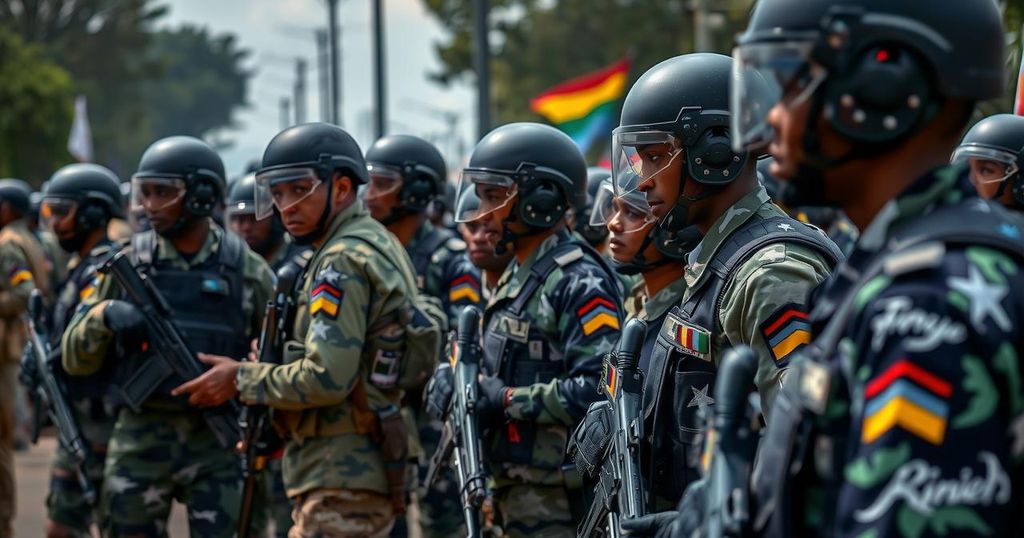Mozambique’s Election Crisis: Tragically Youthful Victims of Political Turmoil

Mozambique faces a severe crisis following violent protests against the electoral outcome, resulting in the deaths of several individuals, including children, during clashes with the police. The protests were sparked by allegations of a rigged election, with citizens expressing discontent against the ruling Frelimo party. Activists criticize the police’s excessive use of force, leading to widespread mourning and demands for justice from families of the victims.
In recent days, Mozambique has witnessed a profound tragedy following the killing of a 16-year-old boy, Antonio Juaqim, during protests opposing the controversial outcome of the recent presidential election. The protests, characterized by citizens banging pots and pans as a form of dissent, have resulted in a significant loss of life, particularly among the youth. Antonio’s death, alongside the alarming reports from various humanitarian and rights organizations, has brought forth accusations against the police regarding the use of excessive force to suppress demonstrations. Activists have criticized the ruling party, Frelimo, which has been in power for nearly five decades, alleging that it is increasingly disconnected from the needs of the populace, especially the younger generation who seek economic opportunities and social justice.
Following the electoral commission’s declaration that Frelimo’s candidate, Daniel Chapo, won with 71% of the vote—a figure contested by the main opposition leader, Venâncio Mondlane—the political climate in Mozambique has rapidly deteriorated. Mondlane has accused the electoral process of being rigged and has urged his followers to protest against Frelimo’s long-standing rule. This has led to widespread unrest in cities like Maputo, with the repeated nighttime banging of pots representing a collective outcry for justice and change. Tragically, this movement has been met with lethal force from law enforcement, resulting in numerous casualties, including children.
The recent events in Mozambique underscore a nation in crisis, where discontent over governance has escalated into violent confrontations. The tragic deaths of young individuals like Antonio Juaqim highlight not only the immediate consequences of these protests but also the broader implications of a society yearning for change, economic development, and accountability. As investigations into police conduct continue and civil unrest persists, the future of Mozambique hangs in a delicate balance, awaiting resolution and justice for its youngest victims.
Original Source: www.bbc.com








